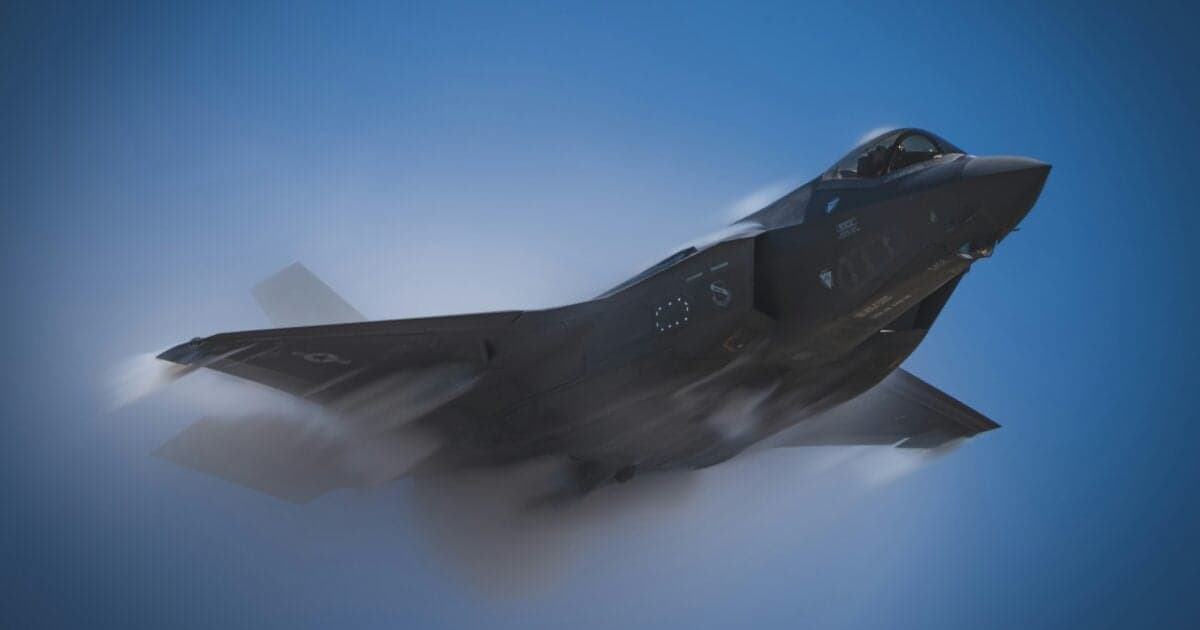Nvidia (NVDA) Earnings Today Might Mean a $1 Trillion Market Move... Is Your Portfolio Prepared?


It's going to be a real humdinger of a doozy...
That's the highly technical term for what we're expecting in the market as chipmaker giant Nvidia (NVDA) reports earnings today after the bell.
Good results and a bullish forecast could rescue the market from its worst November since 2008... But anything less than pure, unrestrained optimism and we may see the stock and market plunge far lower.
Options data implies Nvidia's earnings could trigger a $320 billion swing in its valuation, in either direction... the largest post-earnings move ever for the artificial intelligence ("AI") bellwether.
In turn, that could move the broader market by considerably more than $1 trillion in value... again, in either direction.
Not least because Nvidia now makes up more than 8% of the S&P 500 Index... and more than 10% of the Nasdaq 100 Index – two major indexes tracked by dozens of funds. And also because investors have tied their hopes to so many other high-flying AI-associated stocks... even as fear is steadily climbing.
The Volatility Index (VIX), often referred to as the market's "fear gauge," has surged more than 40% this month. And CNN's Fear and Greed Index is showing "extreme fear," plunging to a 12-out-of-100 reading, its lowest level since the April tariff tantrum.
What gives? So far this month, Nvidia has pulled back about 10% from its all-time highs. That's hardly a correction, much less a crisis.
But the fear is real... on both sides.
What Is the Market Really Afraid Of?
Renowned value investor Dan Ferris made a good point recently that fear and greed aren't opposite emotional poles of the market. He writes...
The only fear I see in the market almost every day of the year is the fear of missing out ("FOMO").
Lately, investors' FOMO has focused on AI and gold stocks. But I'm primarily identifying it as a general human tendency in modern financial markets. We're always afraid of something.
Greed isn't the opposite of fear. It's just another type of fear.
And as my colleague Corey McLaughlin reported on Monday, the big question for the market right now is whether Nvidia will meet sky-high expectations – both for its actual numbers, and how big of future promises it's willing to make. As he put it...
Several mega-cap tech companies saw their shares fall in recent weeks. They reported earnings that showed generally good results, but they weren't as audacious in their future guidance as analysts have been used to in the past few years.
Barron's struck a similar tone in an article about the latest circular AI deal between Nvidia, software giant Microsoft (MSFT), and AI startup Anthropic, noting:
"Skepticism is higher now than at anytime over the last few years," said Nancy Tengler, CEO at Laffer Tengler Investments. "Worries are certainly not limited to investment in the AI land grab but also profitability for the companies engaged in the most notable capex spend."
"Nvidia will likely exceed earnings expectations but the question is whether investors will be mollified or not," she added.
Nvidia's August forecast for third-quarter revenue was $54 billion, plus or minus 2%. At the time, that was above analyst estimates of $53.1 billion.
But since then, analysts have raised their expectations by another billion... with 42 Wall Street analysts expecting an average of $55 billion in revenue from the company.
What's a billion or two between friends?
Not much... until it sends the broader market up or down by $1 trillion.
Our 'One-Armed Economist' Approach to the Market Right Now
President Truman reportedly asked his aides for a "one-armed economist" to avoid the on-the-other-hand hedging that so often came with economic predictions.
We could use one, too.
Nothing about the current market is easy for investors.
After all, scrutiny of the state of the AI market has never been greater. Alphabet (GOOGL) boss Sundar Pichai recently admitted as much to BBC News:
We can look back at the Internet right now. There was clearly a lot of excess investment, but none of us would question whether the internet was profound...
I expect AI to be the same. So I think it's both rational and there are elements of irrationality through a moment like this.
And the Wall Street Journal notes that several big-name investors have sold out of their Nvidia positions...
On Monday, a filing showed billionaire Peter Thiel's macro hedge fund had dumped its entire Nvidia stake in the third quarter – a holding worth about $100 million at current prices.
Last week, Masayoshi Son's SoftBank Group said it had recently sold its Nvidia stake for $5.8 billion, helping set off the recent selloff in AI stocks.
Investor Michael Burry – whose bet against the subprime mortgage bubble was featured in Michael Lewis's book "The Big Short" and its subsequent film adaptation – has also fueled negative headlines around Nvidia.
Earlier this month, a securities filing showed that Burry's hedge fund bought options that will pay off if Nvidia's shares drop.
But Dan Ferris noted last week that Nvidia's valuation actually peaked two and a half years ago at 218 times earnings. It seemed crazy then... but as Dan admits:
Anybody who expressed skepticism would have been entirely justified...
And entirely wrong.
Since that moment, the stock has risen more than 300%. Today it trades at around 28 times sales, 57 times earnings... and just 30 times forward earnings. The entire S&P 500 Index trades at 30 times current earnings and 23 times forward earnings. Nvidia is not insanely expensive relative to the overall index. And the forward earnings multiples suggest the valuation is about to become even more reasonable relative to the rest of the index.
Yes, it's still richly valued. But it's not nearly as insanely valued as it was a little more than two years ago. The earnings growth has – so far – lived up to the hype. Selling graphics processing units ("GPUs") for AI grew the business into its insane, "unjustifiable" valuation.
That's why we're taking our own, simple, one-armed approach to investing today:
Pay off debt. Save rather than spend. And invest in strong businesses and assets that can survive a crisis.
This boom will ultimately end. You must invest now, before it does. And you must focus on owning the companies that will still be around after the bust.
And Nvidia is one of those businesses.
Investors who buy Nvidia today might well be overpaying. But they aren't crazy.
Nvidia's stock could drop 20% or more tomorrow, especially if its earnings show any sign of slowing down. But Nvidia will survive as a company.
It's the most valuable in the world... and for good reason.
- It is by far the No. 1 provider of graphic processing units ("GPUs"), without which AI data centers simply couldn't function.
- Those GPUs are in exceptional demand. Nvidia boasts a backlog worth at least some $300 billion in future revenue for its cutting-edge chips over the next year.
- And Nvidia is both insanely profitable... and still growing at an incredible pace.
However, for all its strengths, Nvidia is not where we would invest new money today.
Using AI In Your Own Investing
We've been closely following the AI- and Stansberry Score-powered N.E.W. System from former hedge-fund manager Whitney Tilson.
As Whitney and lead analyst Alan Gula wrote in their latest issue (subscribers have access here):
You've likely heard about speculative stocks flying this year... from AI names to "meme stocks."
Many of these companies make no money, and nearly all are richly valued. And that's what the market has loved in the past six months.
Take a look at this chart of the Goldman Sachs Non-Profitable Tech Index. Despite a steep sell-off in the past few days, it's still up about 40% this year versus a 16% return for the S&P 500.
We didn't train The N.E.W. System to chase stocks like those. We want high-quality companies... with solid balance sheets, wide margins, and reasonable valuations.
The next rebalancing for The N.E.W. System and its 20 model portfolio holdings is coming up next month. This is when the AI processes the latest data, reassesses every stock in our universe, and determines which ones make the cut.
That's when you'll see exactly what has changed, why it changed, and how much of each stock to own for the next three months. The intent is for a portfolio that adapts to changing market conditions... but only requires major adjustments four times a year.
Learn more about Whitney's N.E.W. System and how you can use it for yourself right here.




